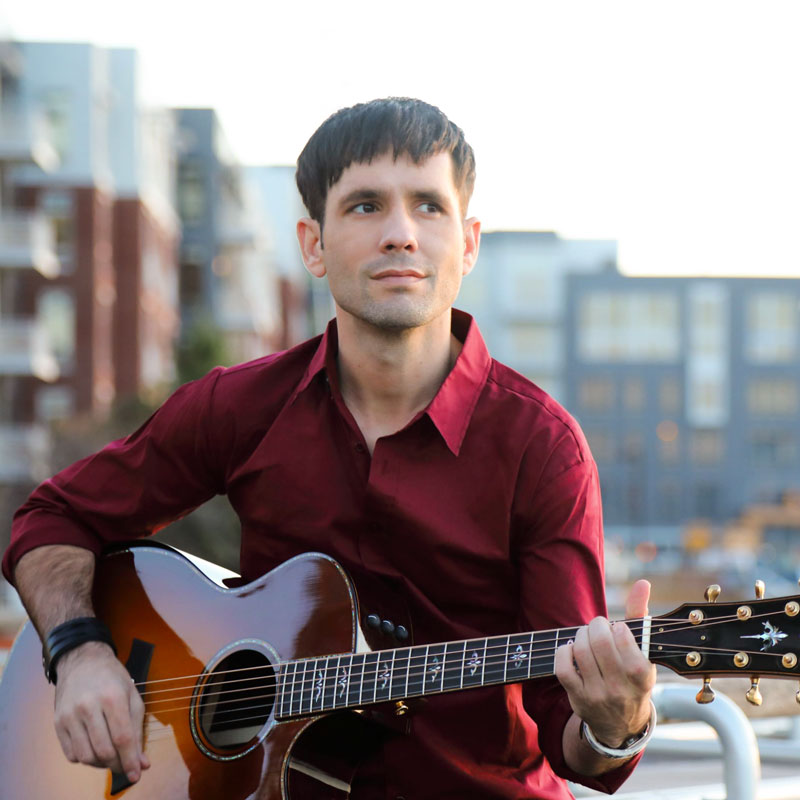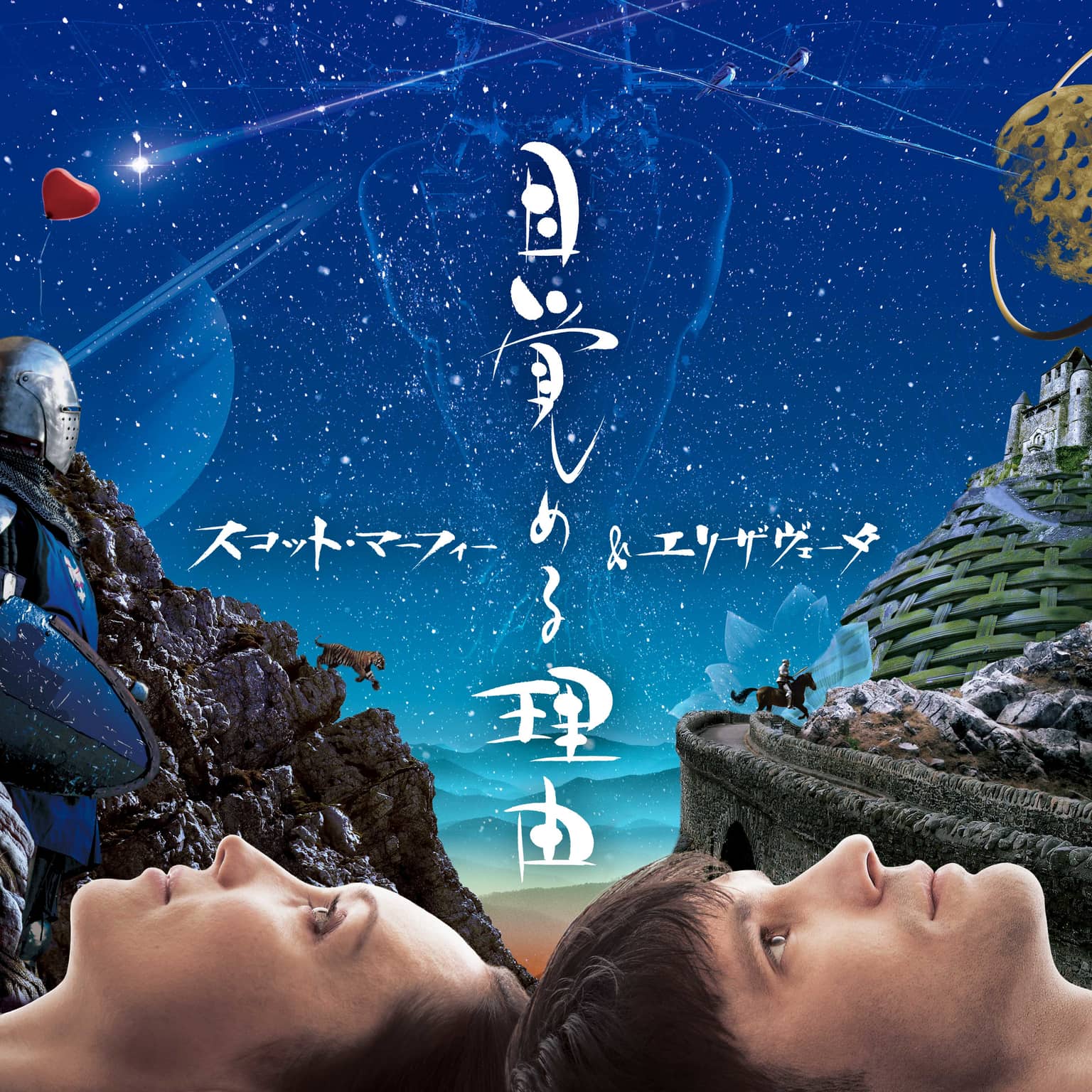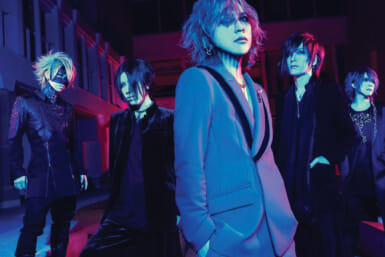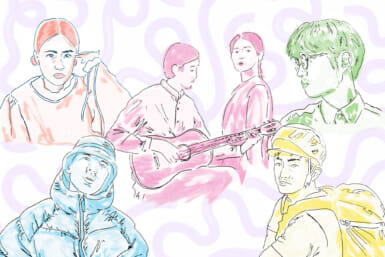The late Queen lead singer Freddie Mercury was candidly verbose about his love for ukiyo-e woodblock prints and wrote the song “Teo Torriatte” to perform for his Japanese fans. Since then few foreign songwriters have attempted to pen songs in Japanese until known Japanophile Rivers Cuomo, frontman of Weezer, teamed up with musician Scott Murphy to release two albums, sung in Japanese, as the duo Scott & Rivers.
Now Murphy, former member of the American punk pop band Allister and current bassist for Japanese band Monoeyes, is back on the scene with Russian-American pianist and opera singer Elizaveta. The two joined forces to release the collaborative album Mezameru Riyuu (Reasons to Wake Up), a 12-song album sung almost entirely in Japanese with a healthy mix of ballads, electro-pop and rock tunes, all with whimsical vocals and breezy lyrics.
TW contacted the two singers to learn more about how they met, how this project came to be and how they were inspired by a mutual respect for Japan.


For those who may not be familiar with your work, how would you describe your music?
S: Since the lyrics on this album are all in Japanese, it automatically adds a different kind of vibe than most of our other English-language songs. Personally, I grew up playing in rock bands, and Elizaveta has a background in pop music and opera, so hopefully, there’s a sort of unique mixture of influences and genres on the album. It’s a little more mellow than the music I normally play, but it was fun to venture out of my comfort zone and try something new.
E: It’s definitely a mix of two (or three!) worlds, however, I do think it’s not jarring but rather creates a unique journey to be taken by the listener. There are some all-acoustic songs, two or three with definite electronic influences and a couple of “band” songs, too.
When did you move to Japan and what inspired that decision?
S: In 2006, my band in Chicago, Allister, did a full three-month tour of Japan with Japanese rock band Ellegarden. About eight years later, both of our bands had gone on hiatus, so the singer of that band, Takeshi Hosomi, called me up and asked if I’d be interested in moving to Japan to work on a project together. We’d become close during that tour and I knew we meshed well, so even though I knew it would be a major life change, there was no hesitation on my part. We started a band called Monoeyes about five years ago, and I’ve been here ever since.
E: I moved to Japan two and a half years ago. I had always been fascinated by Japanese culture, and things aligned in 2016, so I could finally visit a couple of times and experience the country. I had spent many years in LA, and I felt like I needed something new to inspire me. I am still learning, when it comes to language and culture; there are so many layers to Japan and what it is about.

How did you two come to collaborate?
S: I was working on Scott & Rivers … and we were similarly recording an original album entirely written and sung in Japanese with producer Greg Wells in LA. During that period [Wells] was also working on songs with Elizaveta, and he ended up putting us in touch. She told me that she was interested in singing in Japanese, and asked if I’d want to collaborate on a song together. Over the next few years, one song turned into 12, and “Mezameru Riyuu” was born.
What inspired you to record and release an album entirely in Japanese?
E: I am still learning Japanese, so my speaking is still very rudimentary, while Scott is completely fluent. I do love singing in Japanese, though, and finding out about the intricacies of the language. I already speak Russian, French and Italian in addition to English, so all in all, singing in other languages has always been a guilty pleasure of mine. This album is kind of a love letter to the country I now live in. Scott has been living here for a long time, so he already has a history of singing in Japanese.
Were there any challenges you faced during the recording process?
E: Most of the tracks were co-produced with American producers, but the lyric-writing was done by a native Japanese lyricist, Rozel. It’s true that the language determines much of songwriting when you first start out with lyrics only, but here, all the music came first, so lyrics had to adapt to the already existing melodies. It was fascinating to be part of the process, though, and realize even further how subtle and different Japanese really is. English is very much more direct and quite simple, in that regard. Also, we were working on it remotely much of the time, because Scott has a rigorous touring schedule with his other bands, so a lot of communication was done through email. It’s hard to express in words what you really mean when you feel that the other person needs to sing something differently… it’s easier in person when you can just say: OK, try this! And sing it right there and then. A lot of my vocal work was done in a beautiful studio in Fukuoka, at the Fukuoka School of Music and Dance. Its engineer Masumi Hamamoto was really a delight to work with.

If you could recommend one song off your album, what would it be?
S: Probably “Yume Miru”… It was the first song we did together, so listening to it now brings back a lot of memories. We were still kind of feeling each other out at that point, so at least for me, there’s a sort of nervousness and excitement that comes through in the vocals on that track.
E: I think it would be “Eihei” because it was recorded live in the studio, and there’s a particular emotional quality to it, which sets it apart to me.
Finally, what are some of your favorite Japanese bands or favorite venues in Tokyo?
S: The first show I ever played in Tokyo was at a venue called Club Quattro in Shibuya, so that place will always have a special place in my heart. As far as bands, the one that’s been in my playlist since I first started listening to Japanese music is a band called Spitz. A fan gave me their best-of album at a show many years back, and I was immediately drawn to their sense of melody and beautifully written lyrics.
E: I like a wide variety of music, from J-pop, J-folk and J-rock to anime soundtracks (Joe Hisaishi and Yoko Kanno are a highlight for me). L’Arc-En-Ciel, Kokia come to mind, but there are so many others. I am just now starting to tour and perform live again, so let me get back to you next time!
Scott Murphy & Elizaveta finished their Japan in Oita City on May 23, but curious ears can listen to the album on major streaming platforms. Coverage of the tour is available exclusively through Elizaveta’s Patreon site.









